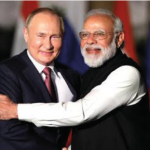PEDAGOGY TO PROFIT
Over the past two decades, the Valley has witnessed a significant boom in private educational institutions—ranging from elite English-medium schools to coaching centers that resemble corporate boardrooms more than spaces of learning. On the surface, this development is often read as a sign of progress – increased access, parental aspirations, and a thriving economy. But scratch beneath the surface, and what emerges is a more complex and contradictory reality —one where the noble pursuit of knowledge increasingly bows before the altar of profit.
Here we take a Marxist lens to unpack the privatization of education in Kashmir, not as a neutral development, but as a neoliberal project deeply embedded in class interests, capitalist reproduction, and the commodification of knowledge.
Marxist theory posits that in capitalist societies, institutions—education included—are never politically neutral. They operate as ideological state apparatuses that serve to reproduce the conditions of capitalism by shaping consciousness in accordance with dominant class interests. In neoliberal regimes, privatization of education is not merely a reform—it is an ideological move that shifts the burden of education from the state to the market, treating students as consumers, and teachers as replaceable labourers.
In Kashmir, this neoliberal restructuring becomes even more pronounced due to the region’s fragile political economy, decades of militarization, and a state that increasingly withdraws from its welfare responsibilities. The private education sector emerges as a parallel system, seemingly filling a gap—but in reality, reinforcing structural inequalities under the guise of “quality education”.
Elite private schools in Kashmir today are not just centers of learning; they are institutions of distinction. Their English-medium instruction, Westernized curricula, and polished branding cater to the aspirations of the emerging middle and upper-middle classes—parents who believe that cultural capital and English fluency are passports to upward mobility.
However, this reproduction of class advantage is precisely what Marxist theory warns against. The working classes, on the other hand, are either excluded from these institutions due to prohibitive fees or forced into low-tier private schools that mimic the elite without the resources.
Public schools—underfunded and delegitimized—are increasingly seen as the last resort. Thus, education ceases to be a right and becomes a privilege, one that is bought, branded, and capitalized.
A defining feature of neoliberal education is the conversion of knowledge into a commodity. In Kashmir’s private institutions, therefore, education is no longer valued for its transformative or critical potential; rather, it is measured in terms of grades, ranks, and placements.
This market-oriented model aligns perfectly with the demands of a globalized capitalist economy, which seeks not critical thinkers but “employable” individuals. Knowledge becomes fragmented into modules, units, and packages—taught not to understand, but to compete.
As Paulo Freire might argue, we are witnessing the triumph of the “banking model of education”, where students are passive recipients, and teachers are facilitators of capitalist logic. This commodification is even more visible in Kashmir’s booming coaching industry, where every second billboard promises success in NEET, JEE, or IAS—not through learning, but through purchase.
Perhaps the most tragic irony in this system is the condition of the private school teacher. While schools advertise holistic values and academic excellence, they often do so by exploiting their own teaching staff—underpaid, overworked, and deprived of basic labor rights.
In Kashmir’s private institutions, especially in non-elite and semi-urban schools, the average teacher earns between Rs 5000 to Rs 8,000 per month, without any job security or benefits. Many are qualified postgraduates and trained professionals, yet are reduced to ‘cheap mental labour’, in Marx’s terms.
They are part of the reserve army of educated unemployed, willing to accept any wage just to remain employed. Teachers are expected to be everything—mentors, disciplinarians, content creators, brand ambassadors—and yet, they are treated as the most expendable part of the system. Their devaluation reflects the larger proletarianization of intellectual labour under neoliberal capitalism.
The booming private education sector also feeds off the anxiety of Kashmiri parents—an anxiety shaped by decades of political instability, unemployment, and the constant fear of future lessness. Education, then, becomes a desperate strategy of escape—a way to buy some semblance of stability, dignity, and upward mobility for their children.
But as Marxists would argue, aspiration within a capitalist framework is always structurally unequal. It is not that every child can become a doctor or an engineer; it is that every family is made to believe that they must try, or else perish. The success of a few becomes the failure of the many—a cycle of competition and despair that ultimately serves the interests of capital.
Altogether, the private education boom in Kashmir is not just a story of better schools or rising literacy rates—it is a tale of deepening class divisions, ideological reproduction, and the triumph of profit over pedagogy. It is the manifestation of a larger neoliberal project that reconfigures the very purpose of education—from a tool of emancipation to a product in a competitive marketplace.
A Marxist reading reminds us that education is not just about access—it is about transformation. For the people of Kashmir, any truly liberatory vision of education must reclaim it from the hands of capital. It must center equity, dignity, and critical consciousness—values that cannot be sold, but must be struggled for.
(The Author is Assistant Professor (Sociology), Department of Higher Education Jammu & Kashmir. Email- [email protected])










